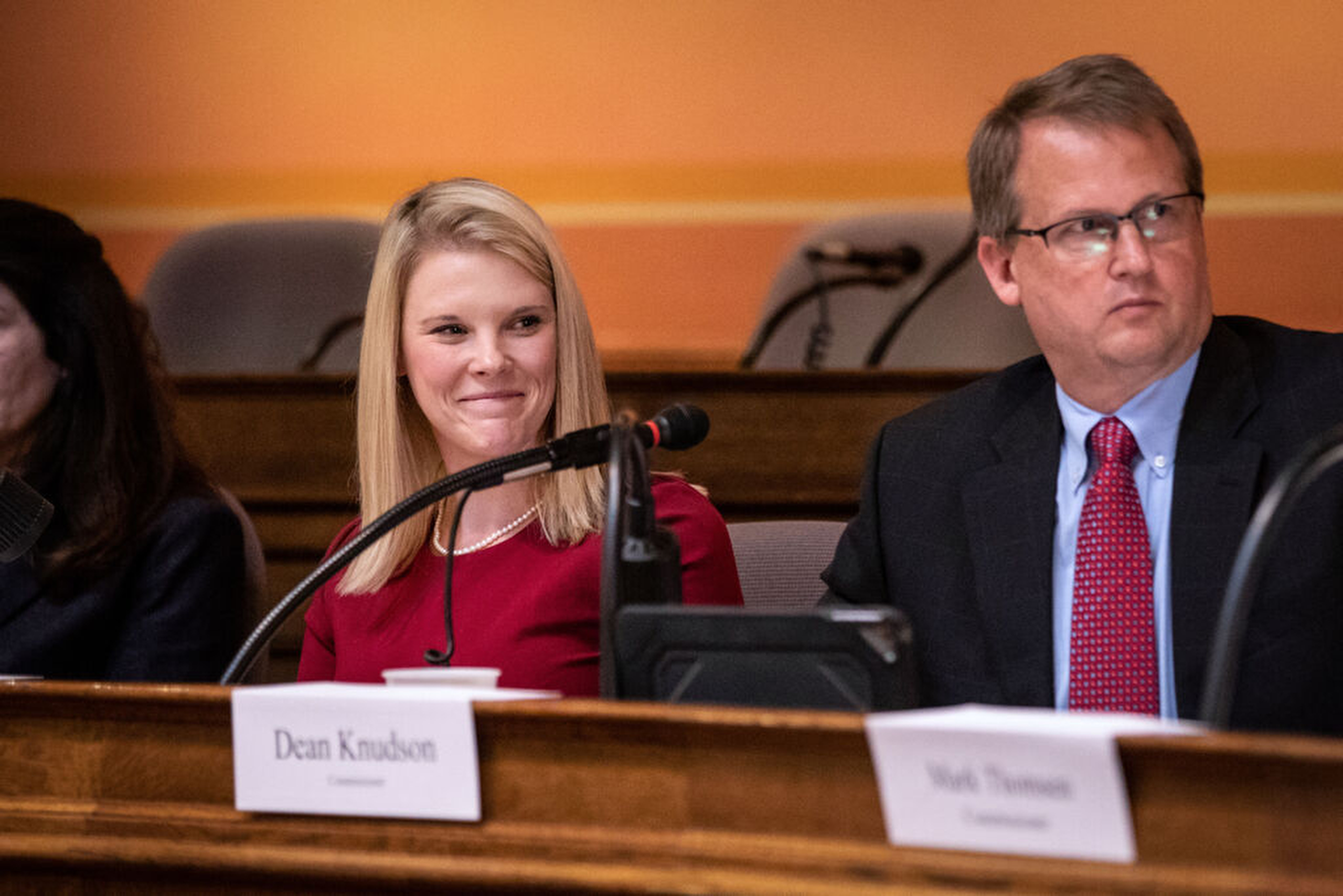The Wisconsin Elections Commission is pushing back on a Republican-ordered report released this week that cast doubt on the 2020 election in Wisconsin, saying the review was full of misunderstandings and outright falsehoods.
The report includes an assertion by Republican special counsel Michael Gableman that votes from “incapacitated” nursing home residents had cast doubt on the outcome of the election.
Gableman issued his report earlier this week and more than eight months after he signed a contract with Assembly Speaker Robin Vos to investigate the 2020 presidential election in the state.
News with a little more humanity
WPR’s “Wisconsin Today” newsletter keeps you connected to the state you love without feeling overwhelmed. No paywall. No agenda. No corporate filter.
Gableman, a former state Supreme Court justice, made a wide range of broad allegations that the 2020 election was conducted illegally, focusing much of his presentation to Assembly lawmakers on votes cast by elderly people at residential care facilities.
In March 2020, the Wisconsin Elections Commission decided that special voting deputies — people deputized by the county clerk to administer absentee voting in nursing homes and qualified care facilities — wouldn’t be able to enter those facilities because of COVID-19 concerns. Instead, residents who wanted to vote could request absentee ballots and get help from staff at the homes to complete them.
During Gableman’s presentation, he showed video interviews of nursing home residents who voted in 2020 being asked to choose between hypothetical candidates based on policy positions, like whether they supported tax cuts. The residents in the video were often confused.
In an interview with PBS Wisconsin, Wisconsin Elections Commission administrator Meagan Wolfe said she felt upset watching the videos.
“Because it did feel like those people were being exploited,” Wolfe said. “There’s no test that’s required to be able to cast your ballot. There’s no test for anyone before they’re able to cast their ballot.”
Wolfe said that under state law, a person must be adjudicated incompetent by a judge before the right to vote can be removed.
“Because the right to vote, it’s a sacred right. And that’s taken very seriously. And so the law says in order for that rights removed, there has to be a court order,” Wolfe said.
Wolfe is among several election officials and mayors who’ve been subpoenaed by Gableman who haven’t agreed to sit for private interviews with him. Gableman has asked a judge to jail the officials if they don’t comply.
Wolfe said she’d be happy to testify as long as it’s in public.
“Every aspect of elections happens in public in a public forum,” Wolfe said. “And I don’t believe that this review should be any difference.”
Staff at the Elections Commission issued an eight-page rebuttal Friday pointing out what they said were inaccuracies in Gableman’s report to the Legislature.
“Various court rulings and investigations have repeatedly affirmed the integrity of Wisconsin’s 2020 general election,” read a statement accompanying the WEC rebuttal. “All decisions made by the bipartisan Wisconsin Elections Commission affecting the 2020 general election were fully transparent and made in public meetings.”
Among other issues, the WEC’s rebuttal focused on private grants to Wisconsin cities that Gableman said amounted to election bribery. A federal judge rejected the same argument in October 2020.
The commission’s report also went into detail on allegations Gableman made that election data wasn’t secure, saying Gableman lacks understanding of security systems like “multi-factor authentication protocol.”
In addition, commission staff disputed Gableman’s suggestion that nursing home turnout was especially high in 2020.
“The Special Counsel does not show his work,” read the WEC’s report.
In Milwaukee, the commission noted, turnout among voters in residential care facilities was actually down in 2020 compared to the 2016 election.
Wisconsin Public Radio, © Copyright 2025, Board of Regents of the University of Wisconsin System and Wisconsin Educational Communications Board.







